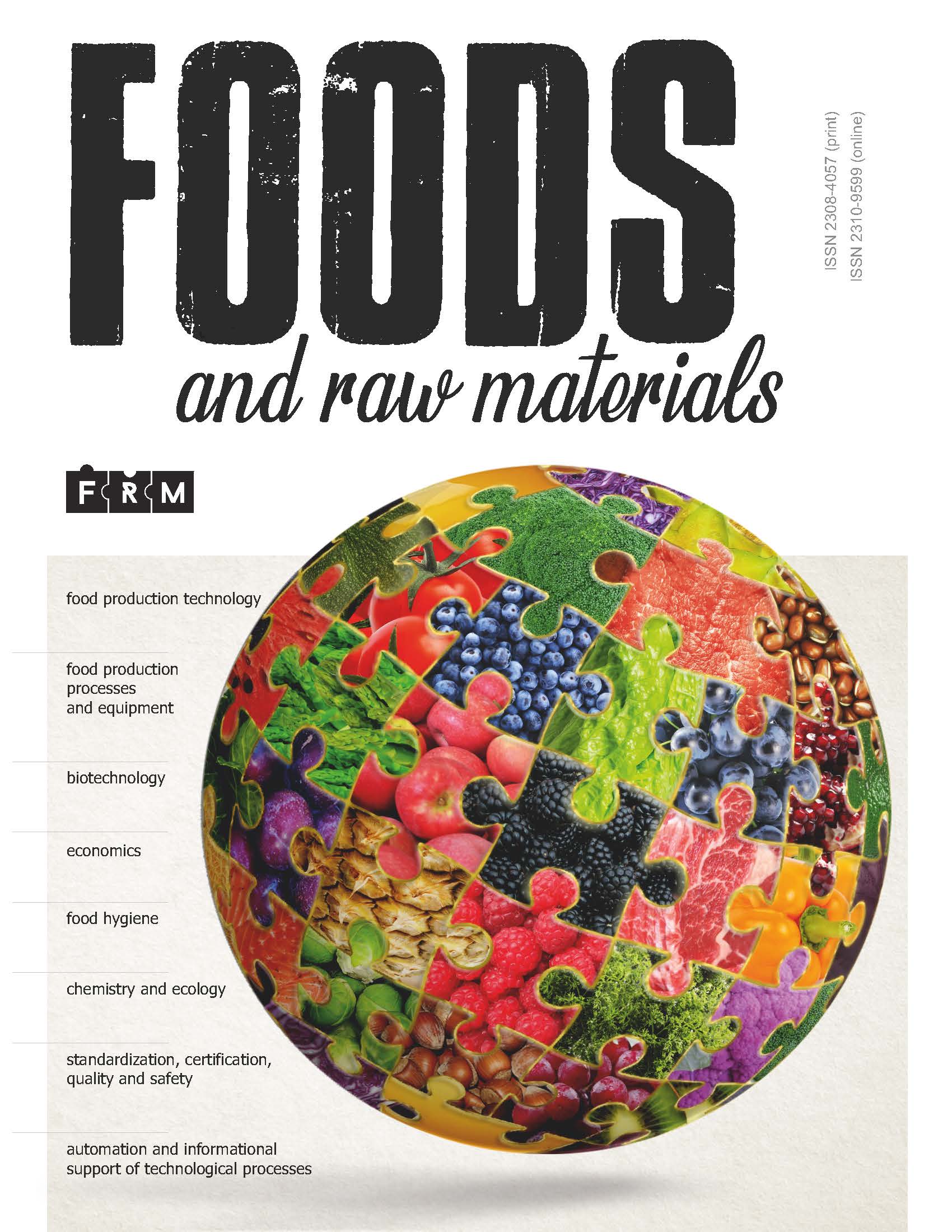The present work is devoted to the development of technological parameters for the hydrothermal processing of powdered sprouted wheat and justification of use of the powder produced as a food additive. Introduction of sprouts into the diet stimulates metabolism and hematopoiesis, boosts immunity, compensates for vitamin and mineral deficiency, normalizes the acid-alkaline balance, promotes the elimination of toxins from the body, stimulates digestion, and slows the aging process. The use of sprouted wheat grains in public catering is very limited due to the short shelf-life of this product. Storage of dried grains provides a solution for this problem; however, it necessitates the development of a technology for the use of dried sprouted wheat grain. The present study was a part of research on the powder produced from sprouted wheat and centered on the process of hydrothermal treatment of dry sprouted wheat powder. Conventional methods were used in the present work for the analysis of physical and chemical parameters. A range of factors, including the protein content of the powder, the degree of mechanical damage of the starch granules, and the pH value of the solution, affects the water absorption capacity of the powder produced from sprouted wheat. Treatment time, temperature, and mash ratio at pH 4.5 and pH 7.0 were varied in experiments performed to determine the optimum operating parameters of the hydrothermal processing. As a result of the study, an energy-efficient technology has been developed for the hydrothermal processing of powdered sprouted wheat grains. The following process parameters were selected: an optimum swelling temperature of 45°C, hydrothermal treatment duration of 60 min at pH 4.5, and an optimum mash ratio of 1:1.25.
technological parameters of hydrothermal processing, powdered germinated wheat grains, the degree of powder swelling
INTRODUCTION
Dormant plant seeds are used as the raw material to prepare a large variety of foods. Sprouted wheat grains are known as a natural organic food, containing a broad range of nutrients in balanced natural amounts and combinations. Introduction of sprouts into the diet stimulates metabolism and hematopoiesis, boosts immunity, compensates for vitamin and mineral deficiency, normalizes the acid-alkaline balance, promotes the elimination of toxins from the body, stimulates digestion, and slows the aging process. Grains with sprouts shorter than 5 mm contain a sufficient amount of antioxidants, which decelerate or prevent oxidative processes when used in low concentrations. Furthermore, enzyme systems of the grain are activated during germination, and complex nutrients are cleaved into smaller molecules easily digestible by the human organism. The use of sprouted wheat grains in public catering is very limited due to the short shelf-life of this product. Storage of dried grains provides a solution for this problem; however, it necessitates the development of a technology for the use of dried germinated wheat. The aim of the present work was to develop technological parameters for the hydrothermal processing of powder produced from sprouted wheat grains.
OBJECTS AND METHODS OF RESEARCH
The powder produced by grinding dried sprouted wheat grains (Technical Specification (TU) 9290-002-50765127-03, OOO SibTar, Novosibirsk) in a Robot Coupe R4 cutter (ROBOT COUPE) was the object of investigation in the present work. The powder had a beige color and a typical smell of wheat flour; particles of 250–300 µm in size constituted 80 ± 0.05% of the powder, and the size of the rest of the particles ranged from 300 to 450 µm; the solids content of the powder was 96.5 ± 0.05%.
Conventional methods were used for the analysis of the physical and chemical characteristics, namely, the content of dry matter was assayed according to GOST (State Standard) R 50189-92 using a moisture analyzer ELVIZ-2C, and active acidity was assayed using a multichannel ion meter Ekspert-001 (3.0.4). The degree and rate of swelling of the sprouted wheat powder were determined according to the procedure developed at the Belarusian branch of VNIMI (All-Union Research Institute of Dairy Industry): namely, 1 g of dry powder obtained from sprouted wheat was placed into a centrifuge tube, and water was added to a ratio of 1:1–1:2. The mixture was incubated in a steamer (Stlf Cooking Center 61) for 60 min at a temperature of 25±1, 45±1, 65±1, or 85±1 °C. The samples were then centrifuged for 5 min at 1000 rpm, the supernatant was decanted, and the moisture content of the residue was measured.
1.
2.
3.
4.
5.
6.
7.
8.
9.
10.
11.










